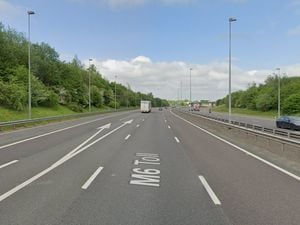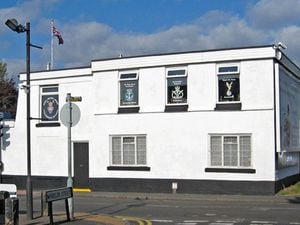School admission fraud probe reveals hundreds of suspect cases
Nearly 900 investigations into school admission fraud have taken place in the Black Country and Staffordshire over the last three years but 96 per cent of them have been carried out by one local authority.

An investigation by the Express & Star found that Dudley Council looked into 830 potentially fraudulent school place applications between 2012 and 2015, withdrawing 10 places after parents were found to have lied on entry forms.
Over the same period local authorities in Sandwell, Walsall and Wolverhampton conducted just 21 investigations between them, while Staffordshire County Council launched 14 probes into fraudulent admissions.
The figures reveal huge differences in the way councils investigate suspected admissions fraud, sparking fears that youngsters across the region could be being denied their rightful place at oversubscribed schools.
Over the last three years 39 youngsters in the Black Country and Staffordshire had school places taken away following investigations.
All of the cases involved parents lying about their addresses to get a place at their school of choice – including using the addresses of relatives and vacant properties.
Dudley Council conducted the largest number of investigations in the country over the period.
The authority matches up the address on applications with council records for the child, while parents have to provide three pieces of evidence to prove where they are living if the records don't match.
In 2014/15 only four per cent appealed against offers for their children and, of those, less than one in ten won their appeal.
Councillor Ian Cooper, cabinet member for children services, said: "Where our data flags up anomalies we thoroughly investigate to make sure that there is no fraudulent activity and take the appropriate action where it is proven there is."
Sandwell Council says it did not keep any records of investigated incidents before 2015/16 'due to the low number of fraudulent applications'.
It said that from 2012-2015 "there were several addresses checked, queried and resolved before places were offered to families".
But in the current academic year the authority found 14 fraudulent applications, all of which involved applicants giving an unused property or relatives address as their home address.
Council spokesman Paul Hayward said: "The council does not, as a matter of course, check every school application for fraudulent addresses during the annual process, but will check if there appears to be a discrepancy or if concern is expressed by school staff, other parents or members of the community."
He added that the council had developed closer links with Sandwell's Counter Fraud Team, which had enabled 'far greater scrutiny of potential fraudulent applications'.
Staffordshire County Council investigated 14 suspected cases over the period and found 11 fraudulent applications.
Councillor Ben Adams, cabinet member for learning and skills, said: "The vast majority of primary and secondary school pupils are allocated a place at one of their top three preferred schools.
"Around 20,000 pupils in Staffordshire apply school places every year, and it is not possible to check every single address within the time available.
"However, on very rare occasions we do have to investigate claims of false or deliberately misleading information on admission application forms. If a claim is upheld, the offer of a school place will be withdrawn."
Wolverhampton council has only investigated two cases in the last three years, resulting in the withdrawal of one school place after a parent lied about their address on an application form.
Meanwhile Walsall Council withdrew three places following five investigations.
Spokeswoman Laurie Andrews said: "All the cases that the council has investigated in recent years have been where there is a suspicion that the address given on the application was not the child's permanent home address at the time of application or on the primary or secondary offer date.
"In such cases the council will ask the parents to provide documentary evidence to prove that the child was resident at the address on the relevant date.
"If the parent is unable or unwilling to provide acceptable proof of the home address the council will carry out further investigations to determine the correct address which may include checks on the data from the electoral roll, benefits agency or council tax.
"Where a family is believed to have changed address the council may contact estate agents and solicitors involved in a house purchase or housing associations and private landlords where a property is rented.
"The council may also visit one of more of the home addresses given on the application."
Rob McDonough, who sits on the Department for Education's fair access group on school admissions, said admissions fraud was 'a big problem' for oversubscribed schools across the country.
"The worrying thing is that each one of these places that slip through the net actually denies a child that has a rightful place at the school."
Lucy Powell, Labour's shadow education secretary, said fair school admissions had become 'a postcode lottery'.
She added: "The pressure on admissions is growing because of the chronic shortage in places with parents increasingly desperate as a result."





